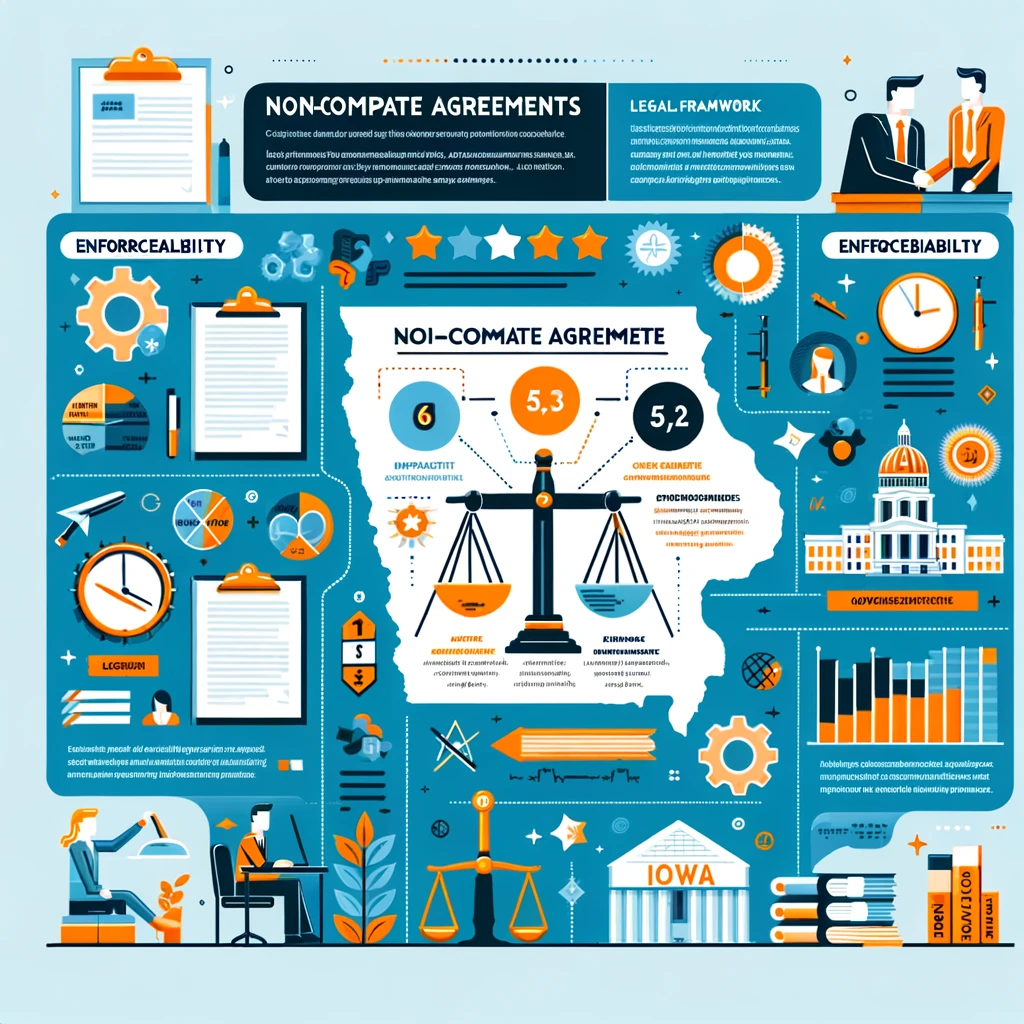Understanding Non-Compete Agreements in Iowa: A Comprehensive Guide
In the competitive business landscape of Iowa, non-compete agreements play a crucial role in protecting businesses while balancing employees' rights to work and move freely within their chosen professions. This guide dives deep into the intricacies of non-compete agreements in Iowa, detailing their legal framework, enforceability criteria, and practical implications for both employers and employees.
What is a Non-Compete Agreement?
A non-compete agreement, also known as a covenant not to compete, is a legal contract in which an employee agrees not to enter into competition with an employer after the employment period is over. These agreements can also restrict employees from joining a competitor or starting a similar business within a certain geographic area and time frame after leaving the company.

Key Elements of a Non-Compete Agreement
Duration: How long the agreement lasts.
Geographical Scope: The specific area where the restrictions apply.
Scope of Activity: The particular activities or industries in which the employee is restricted from working.
Legal Framework in Iowa
Iowa's approach to non-compete agreements is guided by state laws and court decisions that seek to balance the interests of employers and employees. The enforceability of these agreements in Iowa is contingent upon them being reasonable in scope, duration, and geographical area. They must also serve a legitimate business interest.
Enforceability Criteria
For a non-compete agreement to be enforceable in Iowa, it must:
Protect a legitimate business interest of the employer.
Not impose undue hardship on the employee.
Not be injurious to the public welfare.
The Iowa Supreme Court has provided guidance on what constitutes a "legitimate business interest," often considering the protection of trade secrets and confidential information as such. However, overly broad or unnecessarily restrictive covenants are likely to be struck down.
Drafting and Implementing Non-Compete Agreements
When drafting a non-compete agreement in Iowa, it's crucial to ensure that the terms are as clear and specific as possible. Employers should:
Clearly define what constitutes a competitive activity.
Limit the geographical scope and duration to what is necessary to protect their interests.
Consider the employee's role and access to sensitive information when determining the necessity and scope of the agreement.
Businesses might also consider alternative protective measures, such as non-disclosure agreements (NDAs), which can offer protection for confidential information without restricting an employee's ability to work in their field.
Recent Developments
While the core legal principles governing non-compete agreements in Iowa have remained stable, there's a growing trend nationally towards limiting their scope, especially for non-high-earning employees. Employers and employees alike should stay informed about any legislative changes that could affect the enforceability of these agreements.
Practical Implications for Employers and Employees
Employers should use non-compete agreements judiciously, reserving them for employees who have access to critical business information or have developed significant customer relationships.
Employees, on the other hand, should carefully consider the implications of signing a non-compete agreement, particularly how it might affect their future employment opportunities.

Create & Review Your Contracts 10x Quality and Ease
Lawyer-level AI handles all your contract needs, with real lawyers providing safeguarding support

Conclusion
Non-compete agreements in Iowa are a complex but necessary tool for protecting businesses while ensuring fair employment practices. Both employers and employees must understand the legal landscape governing these agreements to navigate their implications successfully. For the most current and detailed information, consulting with a legal expert in Iowa or referring to authoritative resources such as the Iowa Judicial Branch or educational legal resources like Cornell Law School's Legal Information Institute is advisable.
Remember, the landscape of employment law is ever-evolving, and staying informed is key to leveraging non-compete agreements effectively and ethically.

